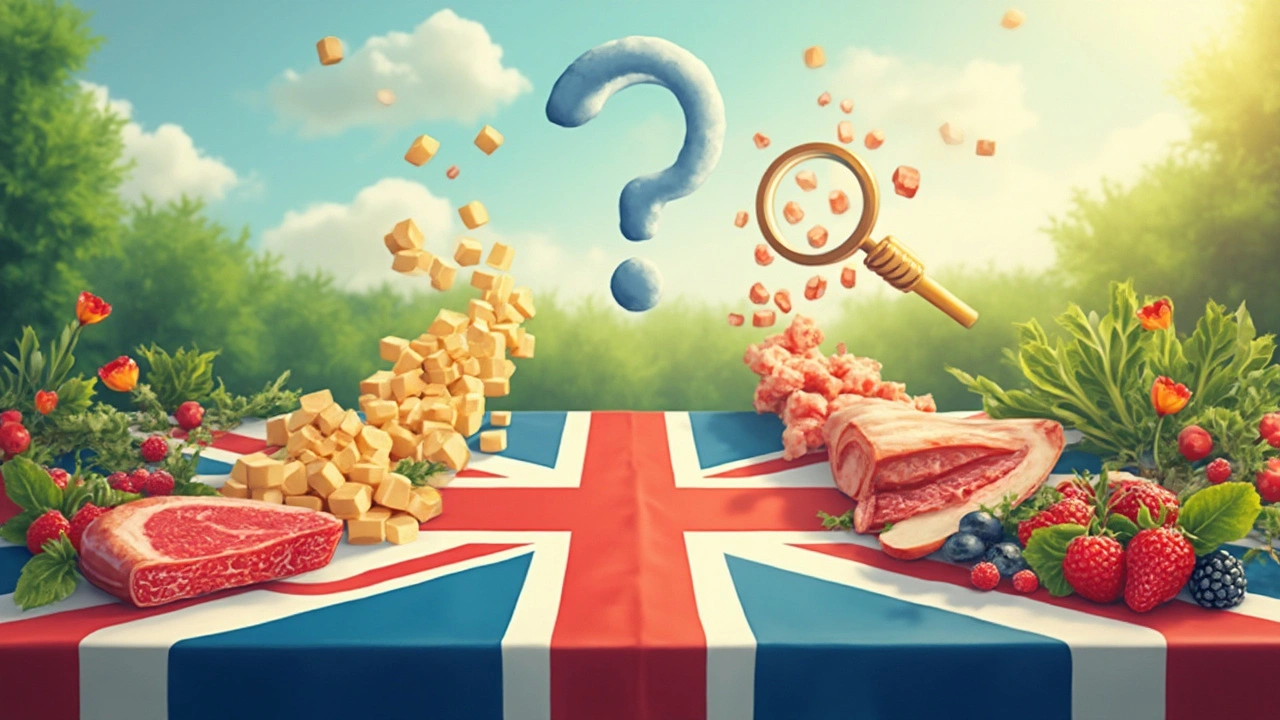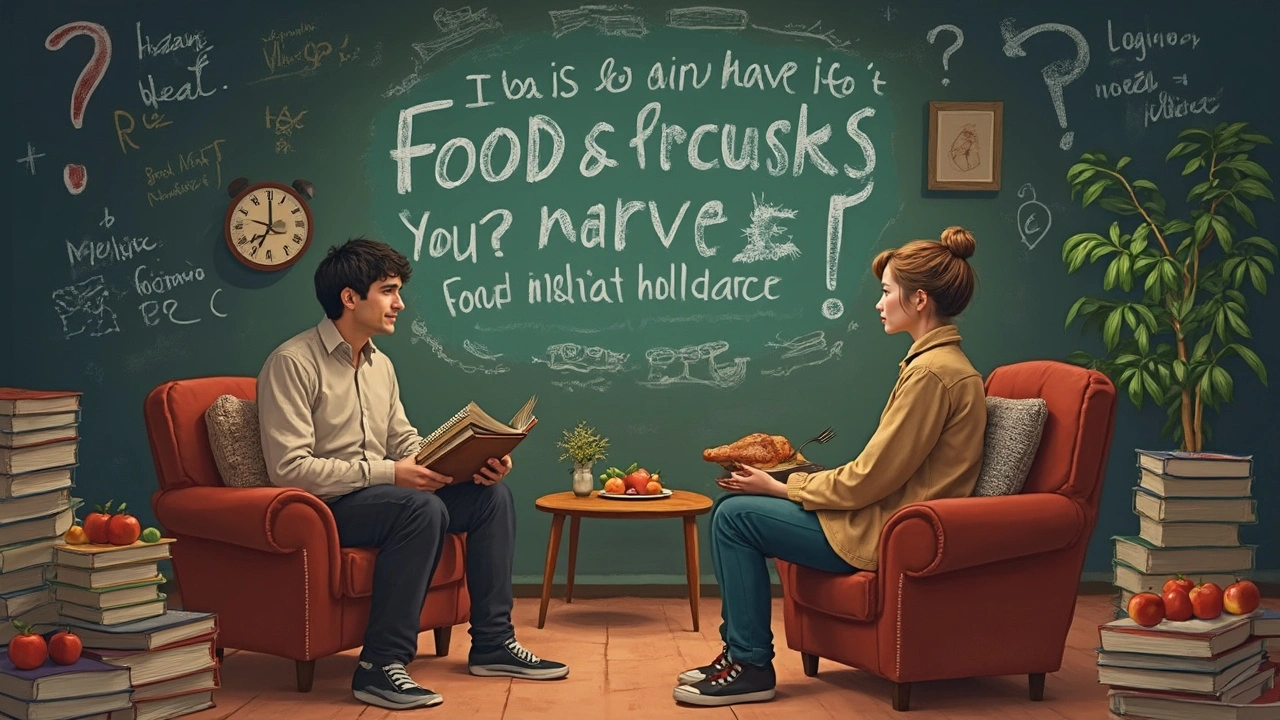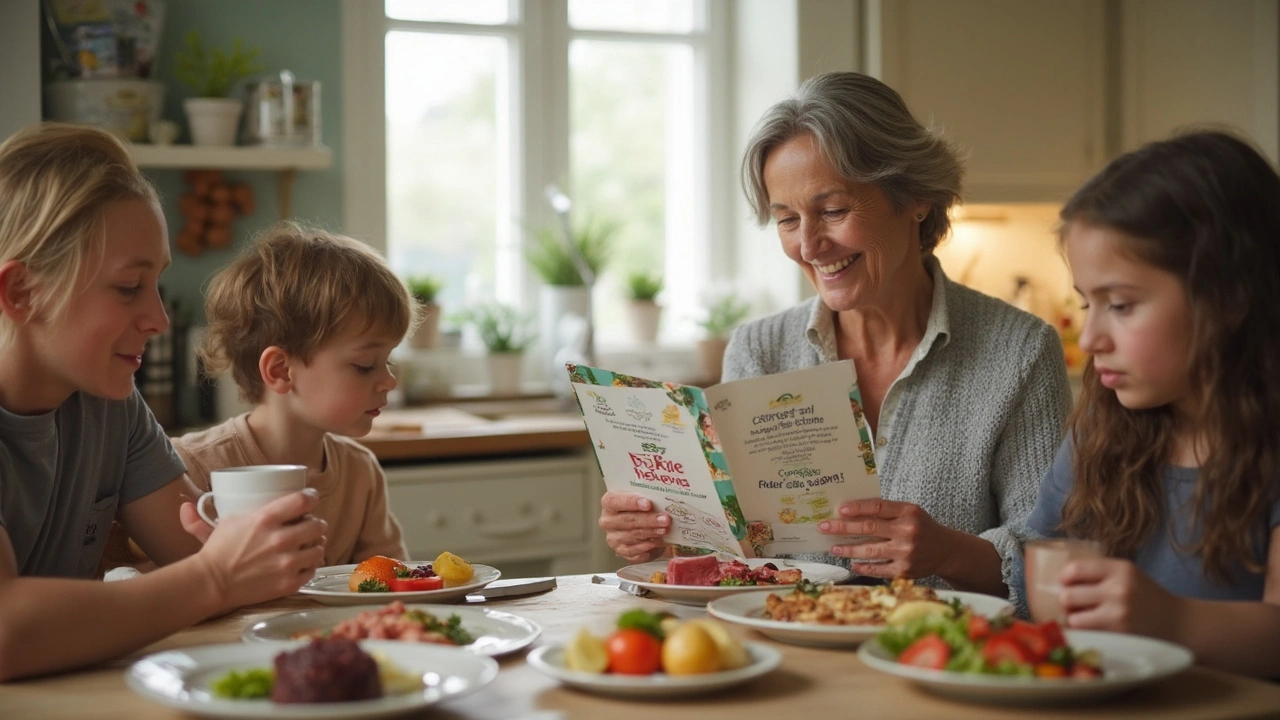If you had to pick one conversation topic that explodes in both kitchens and doctors’ offices, it’s what we eat and how it messes with our bodies — especially when cancer steps into the picture. Everyone’s got an opinion about sugar, red meat, and those mysterious antioxidants. Strangely enough, picking apart the facts isn’t as easy as popping a multivitamin or skipping dessert. The science, like a pot of soup left simmering, is full of bubbling theories, half-baked ideas, and the occasional solid chunk. Let’s walk through what we actually know — and what we don’t — about these three famous diet power-players.
Sugar and Tumors: Is It Really the Bad Guy?
Out there in internet land, you’ll spot claims that sugar "feeds cancer," as though every jellybean is a little villain. The truth is more nuanced, and it starts right at the cellular level. Every cell in your body, the healthy kind and the pesky tumor kind, needs glucose (that’s sugar in everyday talk) to keep chugging along. But here’s where things get tricky: cancer cells can grab and burn glucose faster than healthy tissue, a discovery dating back to the 1920s with Dr. Otto Warburg. Tumors aren’t unique for eating sugar. They’re simply hungrier and more efficient at slurping it up.
Studies using PET scans literally glow when injected sugar highlights tumor activity. But does this mean eating a slice of cake triggers cancer? Not quite. Sweeping studies haven’t found that sugar outright causes cancer in otherwise healthy people, so there’s no need to panic every time dessert rolls around. What’s more clear is that high, regular sugar intake leads to obesity — and obesity is a major cancer risk multiplier, especially for cancers like breast, colorectal, and pancreatic. In fact, the American Cancer Society points out that up to 20% of all cancers in the U.S. might be linked to excess weight.
What about the low-carb craze? Some researchers have explored ketogenic (high-fat, very low-carb) diets for slowing tumor progression since starved tumor cells have trouble making energy. But realities are often less dramatic. Cutting all carbs doesn’t seem to "starve" tumors in humans the way some hoped. These diets can make it trickier for tumors to binge-eat, but they also stress normal cells. Plus, micronutrient deficiencies become a real risk. There’s simply not enough hard proof to suggest going keto outsmarts cancer.
Instead, experts suggest this: skip sugary drinks, processed snacks, and pouring extra sugar in your coffee. Focus on whole grains and fruit, with their extra fiber and nutrients, which keeps you fuller with less blood sugar drama. Curious about the mechanics of how tumors grow at different rates? This breakdown on tumor growth factors will dive into the nitty-gritty.
One amazing tip: read nutrition labels for “added sugars.” The American Heart Association suggests a max of 36 grams (about 9 teaspoons) of added sugar per day for men, and 25 grams (about 6 teaspoons) for women. That’s surprisingly easy to hit in one bottle of soda or a couple of cookies.
| Common Sugary Foods | Average Added Sugar (grams) |
|---|---|
| 12oz soda | 39 |
| 1 frosted donut | 13 |
| 1 cup flavored yogurt | 19 |
| Granola bar | 8 |
| Cupcake with frosting | 17 |
Bottom line: Sugar doesn’t target tumors like a heat-seeking missile, but a high-sugar lifestyle shapes the broad environment where cancer has it easier to develop and thrive. You don’t have to toss every sweet — but making dessert a treat, not a habit, is smarter for your cells than you’d think.
Red Meat: A Sizzling Controversy
Now, let’s put red meat under the microscope. As soon as you mention steak or bacon, you see sparks fly in the kitchen and at health conferences alike. So what’s the beef with beef? The International Agency for Research on Cancer (IARC), which is part of the World Health Organization, classified processed meats (think salami, bacon, hot dogs) as “carcinogenic,” and red meats (like beef, pork, lamb) as “probably carcinogenic.” What does that mean in real life?
Processed meats have strong links to colorectal cancer, the third most common cancer in many Western countries. Regularly eating 50 grams of processed meat a day (about two slices of bacon) bumps up your relative colorectal cancer risk by about 18%. Red meat isn’t quite as clear-cut, but studies show that people who load up on steak most days do face a moderate bump in cancer risk, especially if the meat is charred or cooked at high temperatures.
Why does this happen? It’s not the meat itself but what happens when it’s processed or sizzled. Nitrites, used for curing meats, and high-temp grilling create compounds called N-nitroso compounds and heterocyclic amines. These can damage DNA and foster the kind of cell mutations that set tumors growing. Also, heme iron found in red meat can irritate the linings of the digestive tract, especially the colon.
Does this mean carnivores are doomed? Not quite. Cancer risk from red meat builds over years and with portion size. Eating a burger once a week isn’t the same as eating sausage every single morning. One major European study (EPIC) suggested that every extra 100 grams of red meat a person ate daily pushed up the risk of bowel cancer by around 17%. That’s big if it’s your daily norm, less scary if steak is a weekend treat.
If you want to keep meat in your routine without gambling with your colon, here are a few practical tips:
- Swap out red meat for beans, fish, or poultry a few times a week. Lentil chili is actually pretty good.
- If grilling, avoid burning the meat or charring the edges. Trim off the blackened bits and marinate meats first — studies have found this can cut harmful compounds nearly in half.
- Reach for lean cuts and smaller portions. Think of red meat as a side show, not the main event.
- Watch those processed meats. Save bacon for special breakfasts, not daily routines.
Beyond cancer risks, cutting down on red meat comes with win-win side effects: better cholesterol numbers, less inflammation, and a lower chance of type 2 diabetes.

Antioxidants: Friends or Frenemies?
No doubt you’ve seen ads for “superfoods” packed with antioxidants, promising to keep you cancer-free. These molecules, including vitamin C, E, selenium, flavonoids, and carotenoids, fight free radicals (those unstable molecules that damage our cells’ DNA over time). When you hear that colorful fruits and veggies “prevent cancer,” this is the superhero action they’re talking about.
It’s true that a diet full of fresh vegetables, berries, and nuts seems to lower the risk for many cancers. For instance, folks who regularly eat plenty of leafy greens, tomatoes, and berries have fewer cases of lung and digestive tract cancers, according to large studies in Europe and the U.S. The magic might be in the way antioxidants swoop in to repair DNA, reduce inflammation, and keep healthy cells in tip-top shape.
But before you start popping high-dose pills, hear this: turning to antioxidant supplements hasn’t panned out as hoped. Randomized trials have shown that certain supplements, when given in high doses, don’t lower and, in some cases, actually
raise the risk of cancer. For example, a famous Finnish study found that smokers who took beta-carotene supplements had a higher risk of lung cancer compared to those who went without. The reason? When nutrients are delivered alone, without all the fiber and plant compounds in real food, your body reacts differently — and not always in your favor.
Eating foods rich in antioxidants is the safer bet. Here’s a short list of powerhouses to keep stocked:
- Berries (blueberries, strawberries, raspberries), for their anthocyanins
- Leafy greens like spinach and kale, loaded with lutein and vitamin E
- Tomatoes, especially cooked, for their lycopene
- Green tea, with its catechins
- Nuts and seeds, with selenium and vitamin E
How many servings actually make a difference? The American Institute for Cancer Research recommends eating at least five servings of vegetables and fruits every day. If that sounds like a chore, toss some spinach into your eggs, snack on an apple in the afternoon, and drizzle olive oil on your salad for extra antioxidant kick.
Did you know: Scientists estimate that a Mediterranean diet — which is naturally rich in antioxidants from fruits, olive oil, fish, nuts, and whole grains — can drop your cancer risk by as much as 24%? Not too shabby for simply reaching into the produce drawer a bit more often.
How Dietary Habits Interact with Other Cancer Risks
If you zoom out, what you eat is just one slice of the big cancer pie. Let’s face it: genetics, environment, and plain old luck all play their parts. Still, diet is one of the most tweakable things in your daily life. What’s fascinating — and a little challenging — is how sugar, red meat, and antioxidants interact with stuff like smoking, exercise, age, and even your gut bacteria.
For instance, if someone lights up a cigarette during lunch, that cigarette’s toxins can clash with meat’s byproducts and stress the colon even more. That’s why studies show the cancer risks from food stack up higher for smokers and people who skip workouts. On the other hand, folks who eat fiber-rich, antioxidant-packed foods enjoy added protection. Fiber acts like a street sweeper through the colon, pushing out potential toxins and feeding friendly bacteria that amp up your immune system. Research also suggests these "good bugs" use fiber to make short-chain fatty acids, which can help lower inflammation and keep rogue cells in check.
That doesn’t mean you have to drop everything for a monk-style diet. Life is more complicated, after all. But aiming for these changes matters:
- Cut down on ultra-processed foods (chips, packaged sweets, ready-to-eat meals)
- Add veggies, beans, and whole grains to most meals
- Move your body daily, even if it’s just a walk around the block or a dance in your kitchen
- Keep alcohol in check, since it interacts with many cancer risk pathways
What about folks with a family history of cancer? Doctors sometimes recommend more vigilant screenings and talking to a nutritionist who’s updated on cancer research. But even then, food choices make a difference — they tilt the odds in your favor when combined with all the other puzzle pieces.

Making Sense of Labels, Studies, and Dietary Tips
Trying to decode food and cancer headlines can feel like learning a new language. One year, eggs are out; the next, they’re “nature’s multivitamin.” Red wine is healthy until, suddenly, it’s not. If you want to cut through the mess, here are a few rules of thumb I use and share with friends:
- Trust consensus over hype. One flashy new study doesn’t outshine decades of real-world data. Big meta-analyses and reviews, especially from places like the World Cancer Research Fund and American Institute for Cancer Research, carry the most weight.
- Watch for conflicts of interest. Nutrition advice “sponsored by the Sugar Association” or “Brought to you by the National Cattlemen’s Beef Association” isn’t exactly neutral.
- Avoid black-and-white thinking. Few foods are “bad” or “good” all the time. What you eat most days, in reasonable portions, matters more than one meal or snack.
- Crowd out, don’t cut out. It’s way easier to fill your plate with colorful vegetables and crowd out less-healthy options than to obsess over banning them.
When you’re reading nutrition labels, look for grams of added sugars, sodium, and saturated fat. If a snack sounds too good to be true — like chips promising to “fight tumors” — there’s probably some wishful thinking in the mix.
Here’s a quick glance at how different foods and habits line up with cancer risk, based on trusted sources:
| Dietary Factor | Link to Cancer Risk | Practical Takeaway |
|---|---|---|
| Processed/Red Meat | Higher risk with frequent intake, especially for colon cancer | Save for occasional meals, swap in beans/fish |
| High Added Sugar | Promotes obesity and indirectly raises risk | Skip sugary drinks, read "added sugars" labels |
| Fruits/Veggies (esp. colorful, leafy) | Lower risk for many cancers | Eat at least 5 servings/day |
| Supplements (beta-carotene, E, selenium) | No clear benefit, some risks in high doses | Get nutrients from foods, not pills |
| Alcohol | Linked to several cancers | Moderate to low intake recommended |
Real science rarely gives simple answers, but patterns do emerge. Eating mostly plant-based, limiting processed meats and sugar, and skipping "miracle" pills are the best bets for lowering your cancer odds at the dinner table.
Navigating the wild world of food, cancer, and health isn’t about panic or perfection. It’s about seeing your daily habits as a slow nudge in one direction or another. With all the evidence out there, if you have to bet, betting on beans and berries is safer than bacon and brownies. Just take it one meal at a time; your cells will thank you.


Julius Smith
May 24, 2025 AT 23:07Honestly, if sugar was the devil, why do we still crave it 🍭?
Brittaney Phelps
May 26, 2025 AT 02:54Great overview! Remember, small swaps add up – swap soda for sparkling water and add a veggie side each dinner.
Kim Nguyệt Lệ
May 27, 2025 AT 06:40The article correctly distinguishes between correlation and causation regarding sugar intake and cancer risk. However, it could further clarify the mechanistic role of insulin signaling in tumor metabolism.
Rhonda Adams
May 28, 2025 AT 10:27Love how the piece breaks down the myth versus the data – it’s empowering to see evidence‑based advice. Keep sharing these practical tips, they make a real difference 😊. Your balanced tone is refreshing.
Macy-Lynn Lytsman Piernbaum
May 29, 2025 AT 14:14Sure, swapping soda for sparkle feels like a tiny rebellion against a sugar‑filled culture 🌟. Yet, one wonders why we need to ‘swap’ at all when the system encourages over‑consumption. Maybe the real fight is with marketing, not our taste buds 🤔.
Alexandre Baril
May 30, 2025 AT 18:00Very clear summary. Cutting back on processed meat a few times a week is a realistic step that most people can handle.
Stephen Davis
May 31, 2025 AT 21:47Wow, this article hit the nail on the head about how nutrition isn’t a black‑and‑white villain saga.
First off, the sugar section reminded me that glucose is the universal fuel, and cancer cells just have a faster engine.
That Warburg effect is like the turbocharger of a race car – it doesn’t make the car evil, it just makes it go faster.
The link between high sugar diets and obesity‑driven inflammation is a solid bridge we can’t ignore.
When it comes to red meat, the distinction between processed and fresh cuts is crucial; the nitrites in bacon are the real troublemakers.
Cooking at lower temperatures and using marinades can slash those nasty heterocyclic amines by up to fifty percent.
I also appreciate the practical tip of swapping a weekly burger for a bean chili – it’s a flavor win and a health win.
The antioxidant discussion hit a sweet spot: whole foods bring a synergistic cocktail of phytonutrients that pills can’t replicate.
The Finnish beta‑carotene fiasco is a cautionary tale showing that more isn’t always better.
Still, the Mediterranean diet example proves that a pattern of colorful plates can shave off a quarter of cancer risk.
What I love most is the actionable checklist at the end – read labels, avoid added sugars, and move your body daily.
It’s also worth noting that gut microbiota thrive on fiber, turning it into short‑chain fatty acids that keep inflammation in check.
For anyone skeptical about “diet cures cancer,” remember that no single food is a magic bullet, but the collective effect is powerful.
So, yes, enjoy that slice of cake occasionally, but balance it with berries, leafy greens, and a brisk walk after dinner.
In the end, it’s about nudging habits in a sustainable direction rather than chasing perfection.
Grant Wesgate
June 2, 2025 AT 01:34Solid take! I’d add that even a simple switch like using olive oil for sautéing can boost antioxidant intake 🌿. Keep the vibes chill.
Richard Phelan
June 3, 2025 AT 05:20We cannot sit idly while industrial meat moguls poison our plates with carcinogens. It's a moral outrage that society normalizes bacon breakfasts as a rite of passage. Wake up, people – the stakes are our very cells.
benjamin malizu
June 4, 2025 AT 09:07While the discourse attempts to contextualize oncogenic risk, the persisting reliance on reductive nutritional heuristics reflects a systemic epistemic failure within public health frameworks.
Maureen Hoffmann
June 5, 2025 AT 12:54Hey team, this is the kind of info we need to share at our next wellness meetup! Let’s turn these facts into challenges – who can go a week without added sugar? I’m in, and I’ll bring the berry smoothies 🍓.
Alexi Welsch
June 6, 2025 AT 16:40While the moralistic tone is noted, empirical evidence does not unequivocally implicate all processed meats as causative agents of malignancy; a nuanced risk assessment is requisite.
Louie Lewis
June 7, 2025 AT 20:27They want you to believe it’s just diet the big pharma hides the real agenda the data is being suppressed
Eric Larson
June 9, 2025 AT 00:14Hold on!!! The claim that “big pharma hides the real agenda” is a classic conspiracy trope!!! Yet, let's dissect the actual epidemiological data!!! The correlation between processed meat consumption and colorectal carcinoma has been replicated across multiple cohort studies!!! So dismissing it as a cover‑up undermines rigorous scientific inquiry!!!